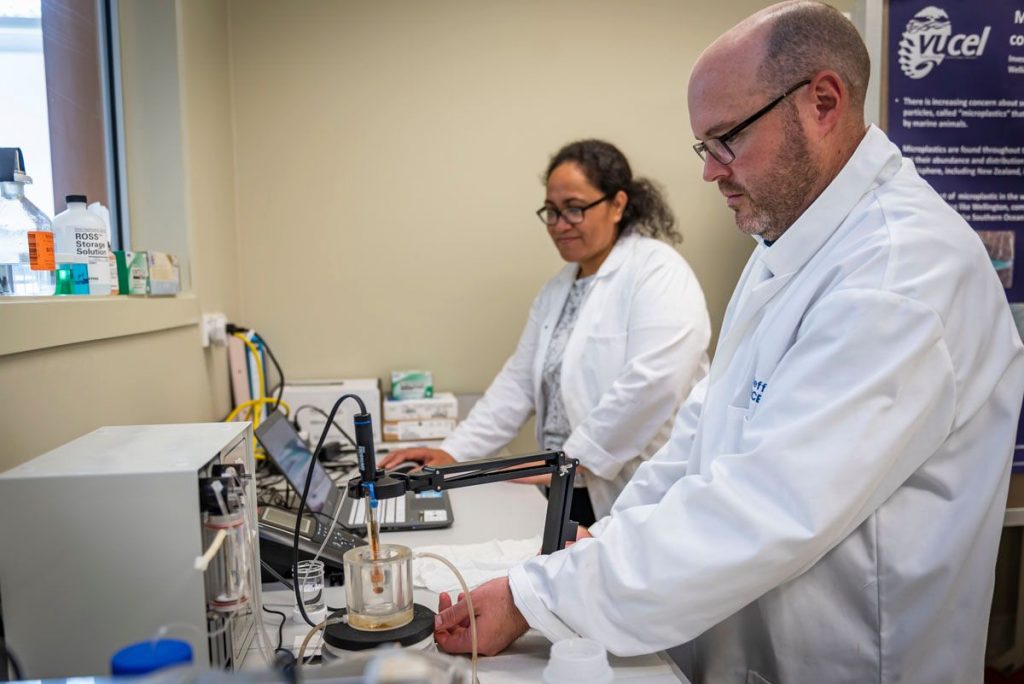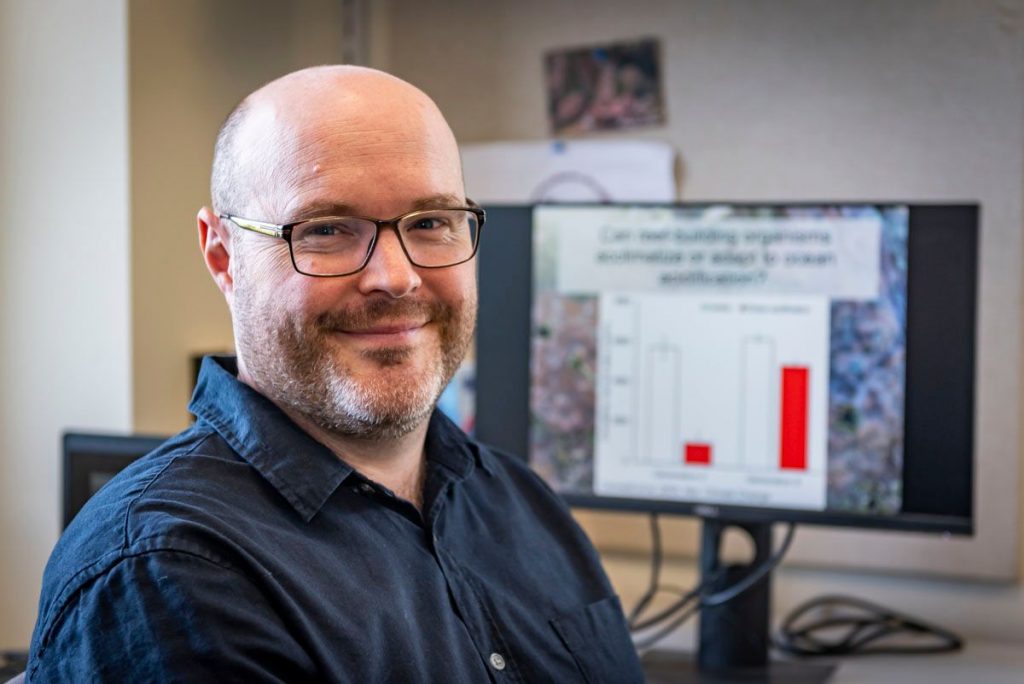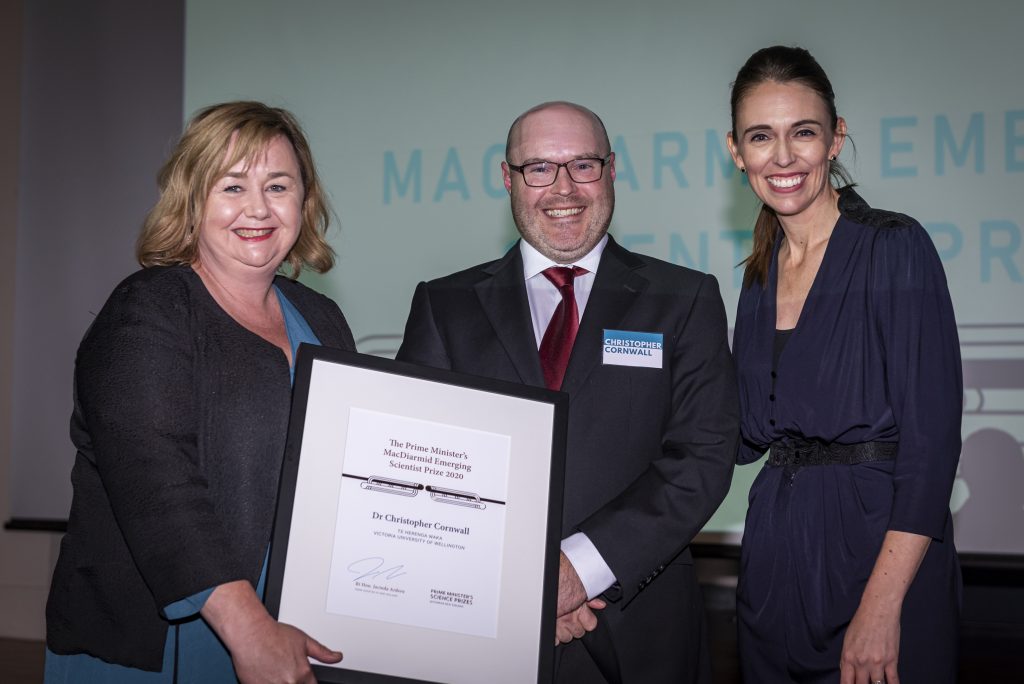2020 Te Puiaki Kaipūtaiao Maea MacDiarmid Emerging Scientist
The 2020 Prime Minister’s MacDiarmid Emerging Scientist Prize Winner is Dr Christopher Cornwall from Te Herenga Waka Victoria University of Wellington, whose research focuses on the impacts of ocean acidification on marine organisms, including seaweeds and various calcifying algae and corals.
Ocean acidification is the result of changes in seawater pH levels due to increasing levels of atmospheric carbon dioxide. It is one of the biggest threats to the world’s oceans and has the potential to cause the collapse of ecosystems.
Chris’s work investigating ocean acidification, and career in research, has centred largely around three major questions:
1) How is ocean acidification leading to a decline in the growth of organisms with calcium carbonate skeletons?
2) Can reef-building organisms acclimatise or adapt to ocean acidification?
3) How will ocean acidification reduce the growth of coral reefs globally?
 His recent findings surrounding the potential for marine organisms to adapt to ocean acidification, and predictions of the medium- and long-term implications of ocean acidification have been ground-breaking for the research community and for the public’s understanding of the effects of climate change. This work offers a glimmer of hope to multiple generations of reef-building seaweeds for coralline algae and corals, which are extremely susceptible to ocean acidification.
His recent findings surrounding the potential for marine organisms to adapt to ocean acidification, and predictions of the medium- and long-term implications of ocean acidification have been ground-breaking for the research community and for the public’s understanding of the effects of climate change. This work offers a glimmer of hope to multiple generations of reef-building seaweeds for coralline algae and corals, which are extremely susceptible to ocean acidification.
His findings have revealed the potential for marine organisms to adapt to ocean acidification, in turn offering predictions of the medium- and long-term implications of ocean acidification. This is not only relevant to the biology of coralline algae, corals and other calcified organisms that live in our waters, but also for understanding how predicted future conditions will impact the ecology and responses of these organisms, and the change to the ecosystems in which these calcified species play significant roles.
This work has been ground-breaking within the research community, and in transforming public understanding of climate change effects. It also offers hope to multiple generations of reef-building seaweeds for coralline algae and corals, which are extremely susceptible to ocean acidification.
Chris’ research is relevant not only to the biology of coralline algae, corals and other calcified organisms that live in our waters, but also for understanding how predicted future conditions will impact the ecology and responses of these organisms, and the change to the ecosystems in which these calcified species play significant roles.
Chris has published articles in many of the highest-impact journals, including Nature, Nature Climate Change, Global Change Biology and Proceedings B. Between having 2400 citations and his publication record at his early stage in his career, it is clear that he has already had a significant impact in his field of research and is committed to his role as a science communicator.
Though explaining the physiological mechanisms of calcification and predictions of ocean acidification is challenging, Chris has proven to be an excellent resource. He communicates research questions effectively to wide audiences by always offering background contexts, and then diving into his findings in an engaging and accessible way.

He has actively participated in a variety of communication avenues for communication such as social media, talking at primary schools, teaching 100-300 level courses in global change biology and marine ecology, supervising postgraduate research students and also through conferences—such as the most recent national ocean acidification conference, Ocean Acidification and the Future of our Seas, which Chris organised.
To learn more about Chris’s mahi, please see the media release.
See the video of the Prime Minister’s Science Prize Award Ceremony.
